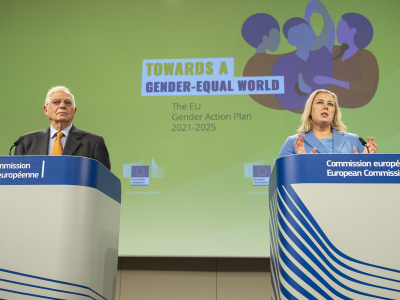
Resilience: A Trojan Horse for a New Way of Thinking?
Background
The term ‘resilience’ has featured more prominently in the policy discourse on fragile states in recent years. Indeed, the OECD now defines the central objective of international engagement in fragile states as being that of ‘moving towards effective, legitimate and resilient states’. But how should we view this term, and can it help to advance thinking on fragile states?
Resilience relates to the adaptive capacity to tolerate and deal with change without a loss of essential functions. Resilience therefore needs to be viewed in relation to a particular social system, a particular shock and a particular function. But whose resilience is it? To cope with what? And in order to continue to do what?
In the current discourse on fragile states, views on these issues differ widely. Are we talking about the resilience of state institutions, of state-society relations, or of society itself?
Key Purpose of ECDPM Study
Enhancing resilience demands a twin-track approach. On the one hand, it is important to put in place policies that put resilience central. On the other hand, we can think about whether a society’s adaptive capacity can be bolstered to strengthen its inherent ability to renew itself in the light of changes in its environment.
Most importantly, however, the concept of resilience is like a Trojan horse: it brings with it a different way of thinking about change. It regards transition out of fragility as a more evolutionary process of social and institutional change.
Key Findings of ECDPM
The current widespread usage of the term ‘resilience’ entails a risk that it may be co-opted by current ways of thinking about change, i.e. that it is not accompanied by the different mental models of thinking about social systems that the term embodies. If the term ends up being used in a very linear manner, where change is controllable from the outside and follows a linear path, the Trojan horse will have failed to achieve its mission.
We can greatly influence the way in which the international community engages with fragile states. By doing so, we can make a break from expert-led technocratic solutions and train the spotlight once again on human agency as the main vehicle for change. Resilience-based thinking underlines the importance of leadership and reinvents the task of the international community as supporting constructive leadership rather than designing expert solutions.



